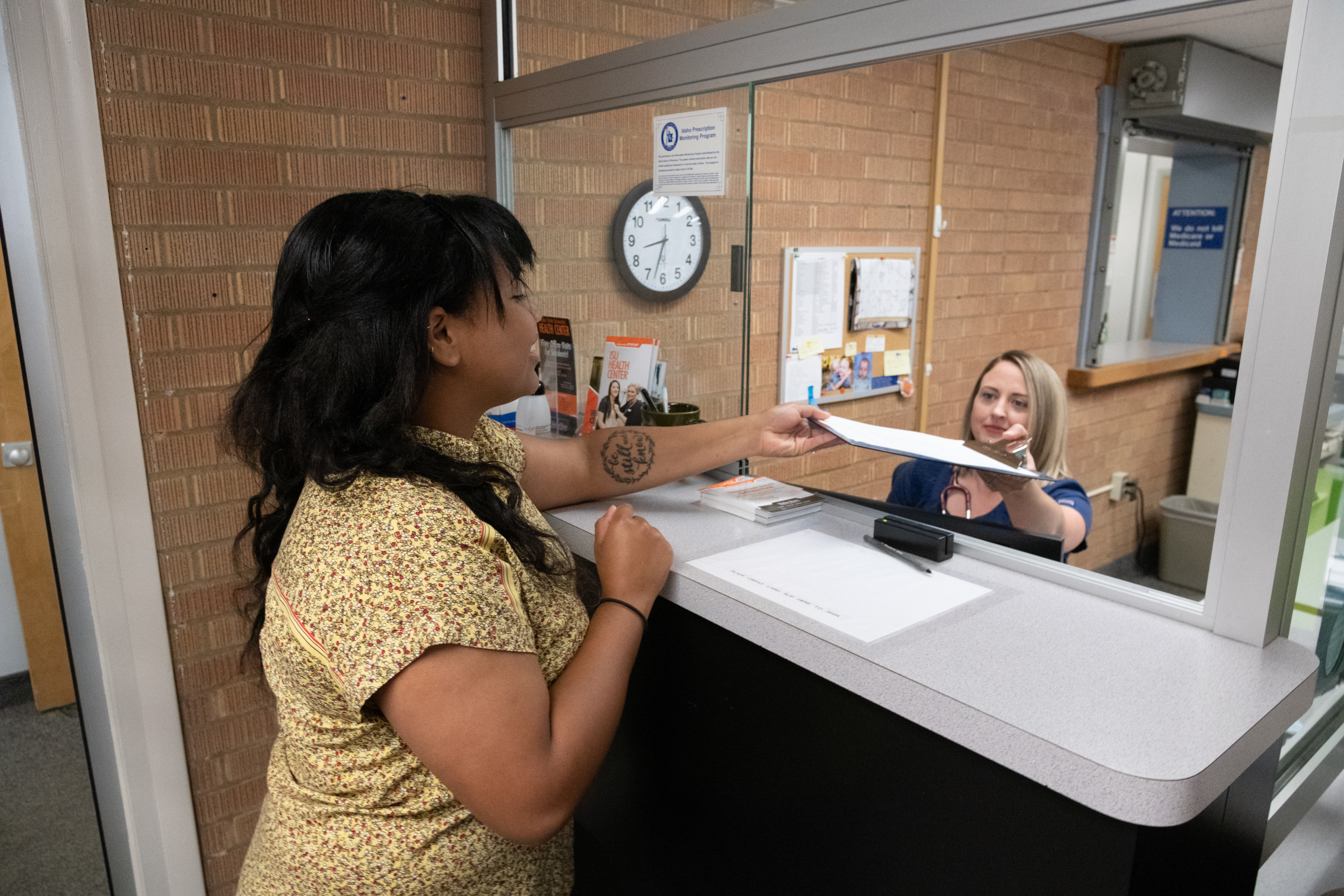Pay Your Bill

Payment is expected at time of service. We accept credit cards, cash and on-line payments.
Pay Your ISU Health Center Bill online
Your Rights and Protections Against Surprise Medical Bills
When you get outpatient/emergency care or get treated by an out-of-network provider, you are protected from surprise billing.
What is “balance billing” (sometimes called “surprise billing”)?
When you see a health care provider, you may owe certain out-of-pocket costs, such as a copayment, coinsurance, and/or deductible. You may have other costs or have to pay the entire bill if you see a provider or visit a provider that isn’t in your health plan’s network.
“Out-of-Network” describes providers and facilities that haven’t signed a contract with your health plan. Out-of-Network providers may be permitted to bill you for the difference between what your plan agreed to pay and the full amount charged for a service. This is called “balance billing.” This amount is likely more than in-network costs for the same service and might not count toward your annual out-of-pocket limit.
No Surprises Act Disclosure
“Surprise billing” is an unexpected balance bill. This can happen when you can’t control who is involved in your care – like when you have an emergency or when you schedule a visit at an in-network facility but are unexpectedly treated by an out-of-network provider.
You are protected from balance billing for:
- Out-patient healthcare services. When you get services at an in-network facility, certain providers there may be out-of-network. In these cases, the most those providers may bill you is your plan’s in-network cost-sharing amount. Out-of-network providers can’t balance bill you and may not ask you to give up your protections not to be balance billed unless you give written consent and give up your protections.
- Emergency services. If you have an emergency medical condition and get emergency services from an out-of-network provider or facility, the most the provider or facility may bill you is your plan’s in network cost-sharing amount (such as copayments, coinsurance, and deductibles). You can’t be balance billed for these emergency services. This includes services you may get after you’re in stable condition unless you give written consent and give up your protections not to be balance billed for these post-stabilization services.
You’re never required to give up protections from balance billing. You also aren’t required to get care out-of-network. You can choose a provider in your plan’s network.
When balance billing isn’t allowed, you also have the following protections:
- You are only responsible for paying your share of the cost (like the copayments, coinsurance, and deductibles that you would pay if the provider was in-network). Your health plan will pay out-of-network providers directly.
- Your health plan generally must:
- Base what you owe the provider or facility (cost-sharing) on what it would pay an in-network provider or facility and show that amount in your explanation of benefits.
- Cover emergency services without requiring you to get approval for services in advance (prior authorization).
- Cover emergency services by out-of-network providers.
- Count any amount you pay for emergency services or out-of-network services toward your deductible and out-of-pocket limit.
If you believe that you’ve been wrongly billed, visit the CMS website (https://www.cms.gov/nosurprises) for instruction about disputing charges as well as additional information about this ruling.
